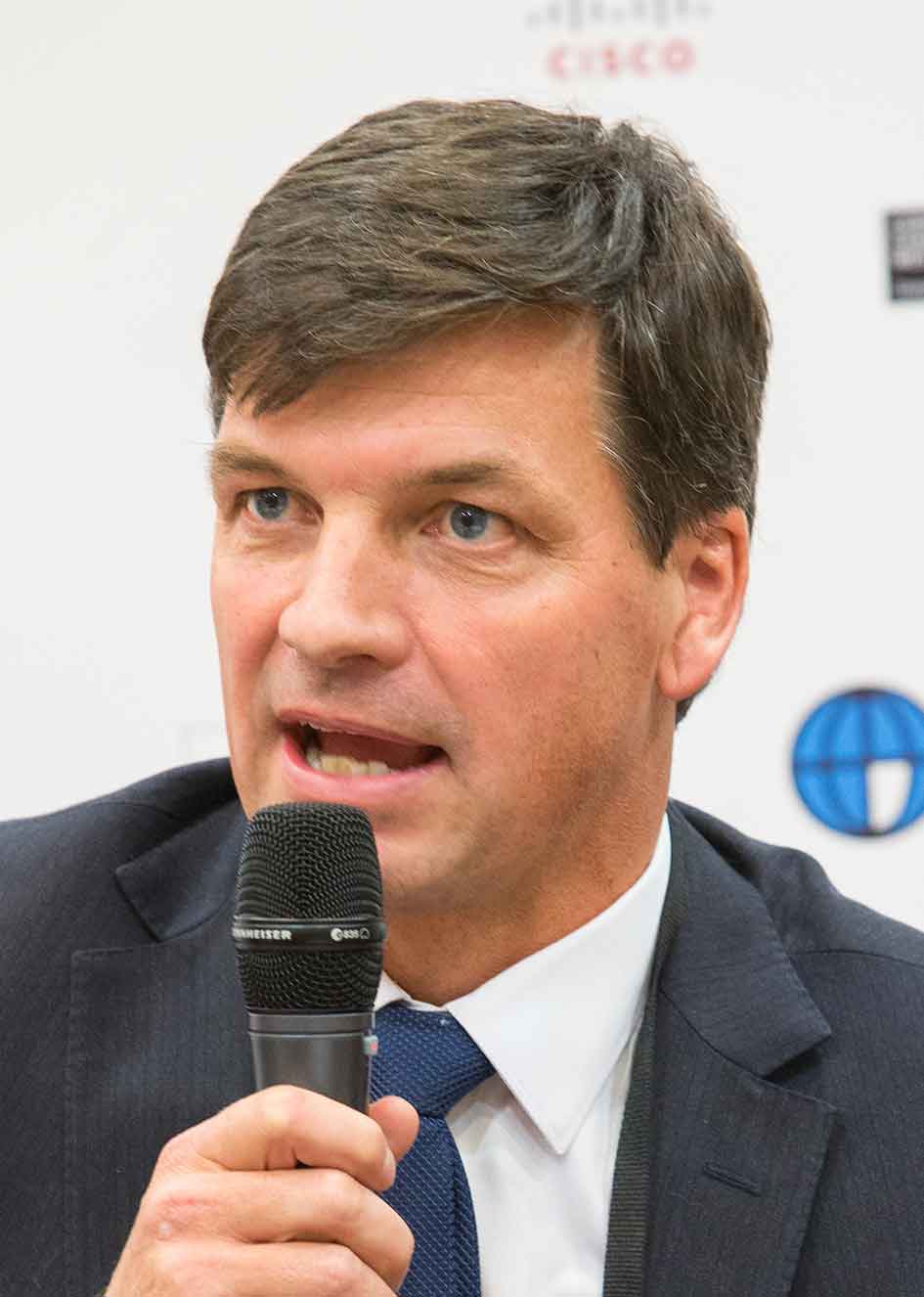ASX clean techs are cautiously upbeat about our new anti-wind energy minister

Pic: Vertigo3d / E+ via Getty Images
Australia’s new energy minister has been branded “a climate change sceptic and anti-renewables campaigner” by investment guru Alan Kohler — but clean tech small cap executives are mostly sanguine about his ascent.
Angus Taylor is the new energy minister, a role that has been shorn of the environment portfolio and has been nicknamed by Prime Minister Scott Morrison as “the minister for getting electricity prices down”.
Mr Taylor was in the conservative camp which last week campaigned for Peter Dutton as prime minister. He has previously opposed renewable energy targets and has campaigned heavily against wind farms.
Renewable energy media are less than glowing about his appointment:
“No cheers for solar from new energy minister,” said photovoltaics magazine.
“Morrison names leading anti-wind campaigner as energy minister,” said Renew Economy.
But small cap clean tech execs are hoping he may be more of a safe pair of hands than his past behaviour suggests.
New Energy Solar (ASX:NEW) boss John Martin is hopeful the new minister will take a facts-based analysis approach, given his resume includes stints as a partner at McKinsey and at consultancy Port Jackson Partners.
While a partner at the consultancy and as he was campaigning for the seat of Hume in 2013, Mr Taylor released a report recommending the Coalition drop the Renewable Energy Target in order to save $3.2 billion a year.
Mr Martin says now-Treasurer Josh Frydenberg was “mucking around with that lump of coal” in Parliament last year, but had since softened his attitude to renewables.
But he also says last week’s turmoil changes nothing as “economics are driving this industry”.
Mr Martin believes Australia’s power sector will be 30 per cent renewables by 2030 simply because they’re cheaper and the majority of people approve of them.
It’s a great honour to be asked to join Scott Morrison’s Cabinet as Minister for Energy or as he described it ‘the Minister for reducing electricity prices’. A tough job, but an extremely important one that has a big impact on so many Australian households and businesses.
— Angus Taylor MP (@AngusTaylorMP) August 26, 2018
“If [the Liberals] want to get elected they have to get on the right side of this issue,” Mr Martin told Stockhead.
Tim Buckley, director of energy finance at the Institute for Energy Economics and Financial Analysis, says solar module prices have dropped from $US0.35 to $US0.40 per watt at the start of 2018 to $US0.25 to $US0.30 per watt this month.
“The magnitude of deflation cannot be stopped,” he told Stockhead.
“In that environmental when thermal coal prices are at six year highs, and solar module prices at record lows [new coal plants become hard to sell].”
Clean Energy Council ‘confident’ in Mr Taylor
The Clean Energy Council is also pinning their hopes on the idea that Mr Taylor may prove to be less of an idealogue and more of a numbers man now that he is in the hot seat.
“As our ageing coal fired power stations continue to retire, it is critical that Australia has a stable policy environment that will attract private investment in new power generation,” said Clean Energy Council chief executive Kane Thornton in an emailed statement.
“The global energy industry is going through rapid and significant changes as most of the world moves towards clean energy such as wind, solar and storage.
“With the wind and solar being built under the Renewable Energy Target already pushing down household power prices, we are confident Mr Taylor will recognise the value of these new technologies to the future of our energy system.”

Mr Buckley is more skeptical about the optics of giving Mr Taylor the energy job.
“An MP who has actively campaigned against wind farms. He’s already shown his true spots and it reduces any pretence of reaching an acceptable progressive compromise.”
Pumped hydro club
At Queensland solar, wind and pumped hydro generator Genex (ASX:GNX) they’re pretty pleased with the changes.
“Our understanding is that the clear focus of the government is energy reliability and that focus hasn’t changed,” says director Simon Kidston.
“The government has recognised that solar energy and energy is intermittent energy… so any system or generator that can be turned on by a switch, which includes gas, coal, pumped hydro, is aligned with their views on energy.”
But that doesn’t mean they’d not prefer a few quiet years in energy from the federal government.
“The movement towards a decarbonised economy is unstoppable,” he said. “That said, any stability would be very much appreciated.”
My Taylor has been enthusiastic about the Snowy 2.0 pumped hydro scheme, and his mother’s father was the chief engineer of the original Snowy Hydro.
Angus who?
The off-grid and remote operators are unfazed by the turmoil in Canberra.
Tag Pacific (ASX:TAG) chief Nathan Wise says the government’s energy policies don’t really impact their section of the electricity market.
He says they’re almost “immune” to the constant policy changes.
This is because the off-grid and remote energy markets are driven by diesel replacement technologies: solar with battery support is now cheaper than fuel generators.
Carnegie Clean Energy (ASX:CCE) boss Mike Ottaviano told Stockhead earlier in August that their biggest problem is that diesel for remote power stations is subsidised.
- Subscribe to our daily newsletter
- Bookmark this link for small cap news
- Join our small cap Facebook group
- Follow us on Facebook or Twitter
“That is by far and away the biggest impediment to the off grid market,” he said.
A solar system and a battery might cost 30c per kilowatt hour (kWh). A less reliable diesel station is 10c/kWh cheaper with the subsidy, but would cost the same as the renewable system without.
He says their wave power technology is also being buffeted by uncertainty around the proposed R&D tax incentives changes flagged in April, not direct energy policy from Canberra.
UNLOCK INSIGHTS
Discover the untold stories of emerging ASX stocks.
Daily news and expert analysis, it's free to subscribe.
By proceeding, you confirm you understand that we handle personal information in accordance with our Privacy Policy.








